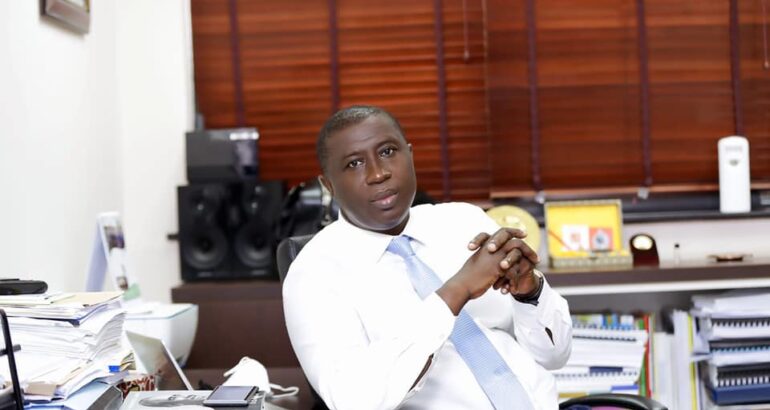Patrick Yaw Boamah, Member of Parliament for Okaikwei Central, has urged the Ghanaian government to implement decisive and sustained actions to solidify the recent gains in the cedi’s performance against the US dollar.
He cautioned that the current stability may be fleeting without concerted efforts to restore investor confidence and strengthen Ghana’s financial markets.
The Ghana cedi, historically known for its volatility, has experienced relative stability since December 2024, appreciating by 2.76 percent against the dollar as of April 2025, according to data from the Bank of Ghana and commercial banks.
Speaking to Joy Business during the IMF/World Bank Spring Meetings in Washington, D.C., Mr. Boamah emphasized that “It’s about confidence. The trust that economic managers instill in the financial markets and investor community influences projections about the cedi’s performance.”
Ghana’s recent staff-level agreement with the International Monetary Fund (IMF), which paves the way for the release of a US$370 million fifth tranche under the US$3 billion bailout program, is expected to bolster reserves and send positive signals to the business community, according to Mr. Boamah.
However, he warned that the government’s outstanding arrears, estimated at GH¢18 billion, could pose a significant threat to the cedi’s stability. “We must assess the net effect on the currency if the government begins to clear these arrears. The impact of such a large cash release on currency depreciation must not be overlooked,” he stated.
Mr. Boamah also questioned the origin of the cedi’s recent appreciation, calling for an analysis to determine whether it is due to sustainable policy measures or temporary interventions by the Bank of Ghana or the Ministry of Finance.
He further suggested that the current reduction in demand for foreign exchange, potentially influenced by easing trade tensions and tariff issues, has contributed to the cedi’s stabilization. “If importers are not sourcing large volumes of dollars, pressure on the cedi reduces. But once these issues are resolved and arrears are paid, we’ll be in a better position to evaluate the true state of the economy.”
Referencing recent World Bank assessments, Mr. Boamah noted Ghana’s 5.7 percent GDP growth rate for 2024 and a debt-to-GDP ratio of 61.8 percent. However, he highlighted revised projections for 2025, which indicate a potential drop in growth to 3.9 percent, down from the initially forecasted 4.47 percent.
“These revisions reflect the complex challenges we face—domestic arrears, global uncertainties, and local policy constraints. The cedi’s stability is welcome, but we must view it as a temporary relief unless deeper structural issues are addressed,” he concluded.


